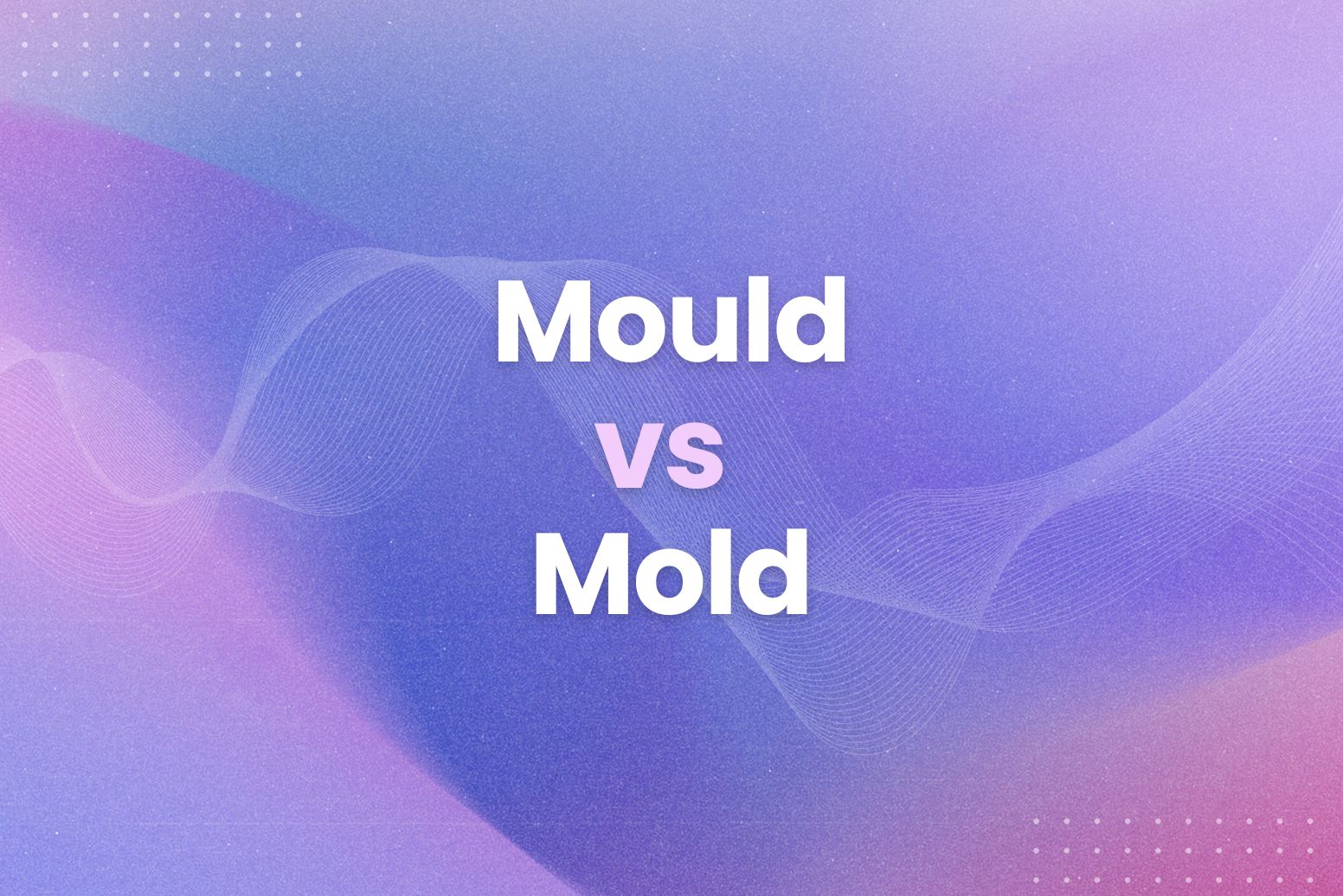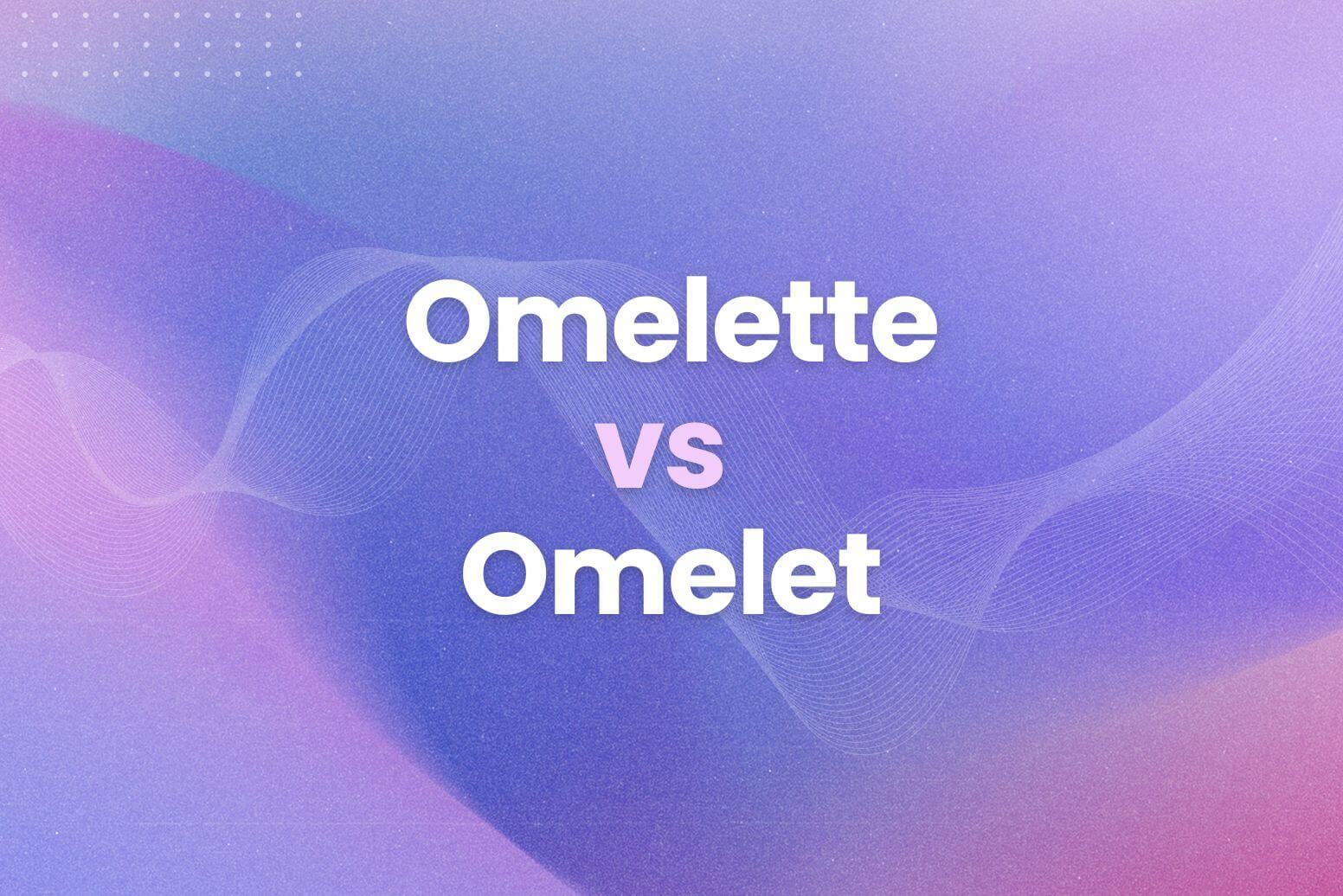Have you ever stumbled upon these two spellings of the same word – mould vs mold? Then wondered which one is actually correct? It’s a common conundrum that trips up even the most seasoned writers.
In this post, we’ll explore the mould vs. mold debate and give you the grammar rules to conquer this confusing pair. Specifically, we’ll cover:
- Firstly, the difference between mould vs mold
- Then, where each spelling is used
- Also, common mistakes to avoid
- Lastly, helpful tips for remembering the correct spelling
Let’s find out.
The Difference Between Mould vs Mold
Let’s get one thing straight: “mould” and “mold” are essentially the same word. They both refer to that fuzzy, sometimes unwelcome, growth that appears on old bread or damp walls. However, the spelling difference comes down to where you live.
- Mould: This spelling is primarily used in British English and other Commonwealth countries like Canada and Australia. Consider it as the fancier, more “u”nique spelling.
- Mold: This spelling is the go-to choice in American English. It’s simpler and more streamlined, just like those practical Americans.
So, which one is right? Technically, both are. It simply depends on your audience and the style guide you’re following. For instance, if you’re writing for an American audience, stick with “mold.” But if you’re submitting a paper to a British journal, “mould” is your friend.
Pro Tip: If you’re ever not sure, Arvin’s grammar checker can help you choose the correct spelling based on your target audience. Simply install the extension, and it’ll be your trusty grammar guide.
Where Each Spelling Is Used
Now that you know the main difference between mould vs mold, let’s explore where each spelling is commonly used. This can get a bit tricky, so buckle up.
Mould (British English)
As mentioned earlier, “mould” is the preferred spelling in British English and many Commonwealth countries. Therefore, you’ll usually see “mould” in:
- Books, newspapers, and magazines published in the UK, Canada, Australia, etc.
- Official documents and government publications from those countries
- Websites and online content aimed at a British or Commonwealth audience
Mold (American English)
On the other side of the pond, “mold” reigns supreme. You’ll encounter this spelling in:
- American publications like The New York Times and The Washington Post
- US government websites and documents
- Content created for an American audience
With the internet blurring geographical lines, you might see both spellings used online, regardless of the website’s origin. For example, a blog post written by a British author might use “mould.” In comparison, the comments section could be filled with “mold” from American readers.
When in doubt, consider your target audience. Are you writing for a global audience? If so, it might be wise to choose the spelling that aligns with your brand or organization’s location.
Common Mistakes to Avoid (and How to Fix Them)
Now that we’ve covered the basics, let’s get into some common mistakes people make when using “mould” and “mold.” After all, nobody wants to look like a grammar goofball, right?
Using the Wrong Spelling for Your Audience
This is a biggie. As we discussed earlier, “mould” is for British English, while “mold” is for American English. So, if you’re writing a blog post for an American audience and use “mould” throughout, it might raise some eyebrows. Similarly, using “mold” in a British publication might make you seem out of touch.
- How to fix it: Always consider your target audience and use the appropriate spelling.
Confusing “Mould” with Other Words
Sometimes, people confuse “mould” (or “mold”) with similar-sounding words, leading to some awkward sentences. For example, some might write “He was molded by his experiences” when they actually mean “molded.”
- How to fix it: Double-check your writing for these mix-ups. A grammar checker can also flag potential errors and suggest the correct word.
Inconsistency in Spelling
Imagine reading an article that uses “mould” in one paragraph and “mold” in the next. Confusing, right? Maintaining consistency in your writing is crucial.
- How to fix it: Choose one spelling and stick with it throughout your document.
By avoiding these common mistakes, you’ll improve your writing and become a more confident and knowledgeable communicator.
Helpful Tips for Remembering the Correct Spelling
Remembering which spelling to use can feel like a losing battle sometimes. We’ve got some handy tips to help you conquer this “mouldy” dilemma:
- Associate “Mould” with “Could”: Both “mould” and “could” have that distinctive “oul” combination. So, if you’re ever unsure, just remember that “mould” is spelled like “could.” It’s a simple but effective trick.
- Think of “Mold” as “Old”: Similarly, “mold” rhymes with “old.” This can be a useful reminder when you’re writing for an American audience. Just think: “old” things often get moldy.
- Use Mnemonics: Mnemonics are memory aids that can help you remember tricky spellings. For example, you could create a sentence like “Mould grows in the United Kingdom” to associate “mould” with British English.
With these tips in your arsenal, you’ll be well-equipped to tackle “mould” and “mold” like a pro.
Become a Mould and Mold Master Using Arvin
We’ve tackled the “mould” vs. “mold” debate and equipped you with the knowledge to use both spellings correctly. Now, you can confidently write for any audience, whether they’re sipping tea across the pond or enjoying a coffee in the States.
Here’s a quick recap of what we covered:
- Firstly, “mould” is primarily used in British English and Commonwealth countries.
- Secondly, “mold” is the preferred spelling in American English.
- Then, both spellings are correct; it depends on your audience and context.
- Lastly, Consistency is key. Choose one spelling and stick with it.
Want to avoid those embarrassing spelling slip-ups and write with absolute confidence? Arvin’s AI-powered grammar checker is your new best friend.
It’ll catch those pesky “mould” vs. “mold” errors and help you choose the correct spelling for your audience. So why not give it a try and see the difference for yourself?
FAQs
Is it “mould” or “mold” for shape?
When referring to a shape or form (like a cake mold or a mold for casting), both spellings are acceptable. However, “mold” is generally preferred in American English, while “mould” is more common in British English.
What is the difference between “mold” and “mould”?
Essentially, there is no difference in meaning between “mold” and “mould.” They both refer to that fuzzy growth or a hollow form used for shaping. The only difference lies in their spelling, which depends on whether you’re using British or American English.
Is it “mould” or “mold” for a cast?
Similar to the previous question, you can use both spellings when referring to a cast or mold for shaping. However, “mold” is generally preferable in American English, while “mould” is more common in British English.
Is it “break the mold” or “break the mould”?
Again, both spellings are acceptable for this idiom, which means to do something original or unconventional. However, “break the mold” is more common in American English, while “break the mould” is common in British English.
In short, the choice between “mould” and “mold” often comes down to regional preference and context.






